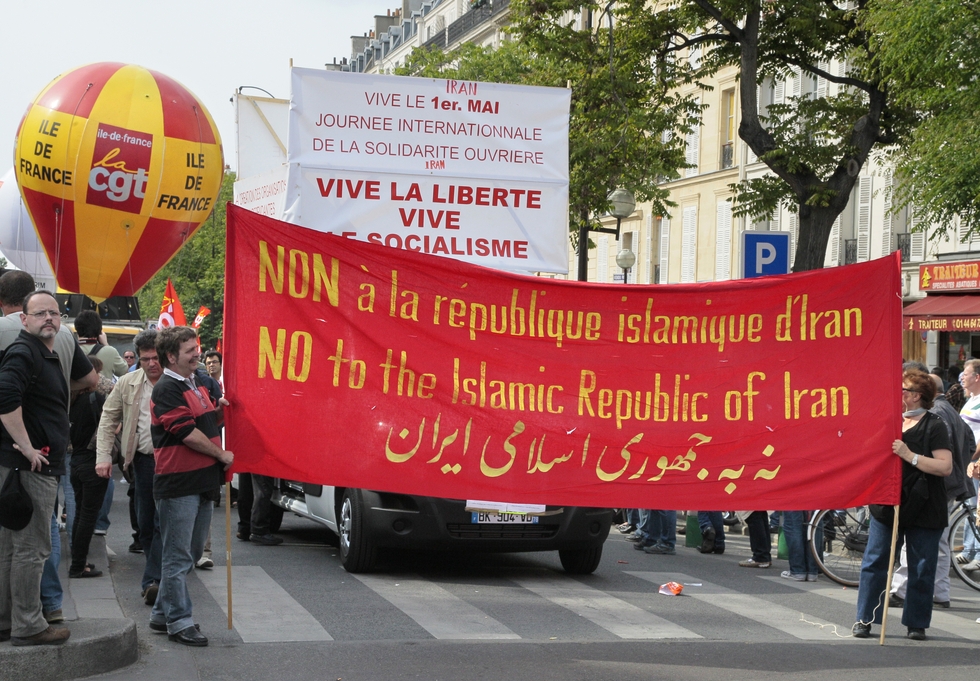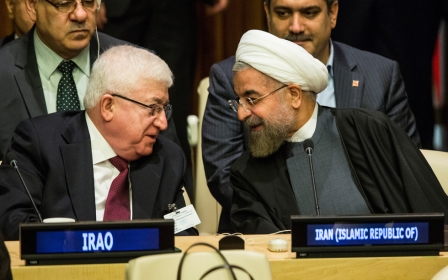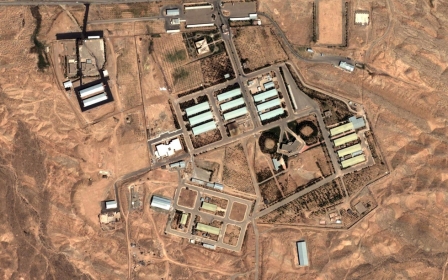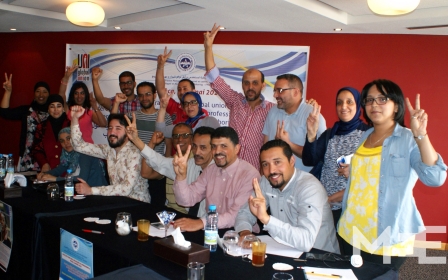International trade union body criticises Iran over suppression of unionists

An international trade union body on Wednesday criticised Iran’s record on trade union rights, warning that recent months have seen increasing repression of trade union activists.
The International Trade Union Confederation (ITUC) cited the cases of Ali Nejati, retired and former president of the Haft Tapeh Sugar Company Workers’ Syndicate who was arrested in his home in a police raid on the 15 September, and Mahmoud Salehi, a founding member Bakery Workers’ Union in the city of Saqez who was recently sentenced to nine years imprisonment allegedly for spreading propaganda against the government.
“Iran is using so-called ‘national security’ laws to justify an escalating repression of legitimate union activity, and to deprive proper legal representation to victims of the repression,” said Sharan Burrow, ITUC general secretary.
“This has devastating consequences for those imprisoned and for their families, and it is also highly detrimental to Iran’s society and economy.”
Last week, Shahrokh Zamani, an official of the Tehran Paint Workers’ Union, died in prison, where he was sentenced in 2011 for 11 years for “spreading propaganda” and “endangering national security”.
ITUC said, in their statement, that he had been “denied access to visitors, phone calls and medication and subjected to physical and psychological abuse in prison”.
Pro-democracy pressure group Committee for the Defence of the Iranian Peoples’ Rights (CODIR) slammed his treatment and implied that he had been tortured.
“Although the Iranian regime claims that Zamani has died of a stroke, reports of ‘black and bruised’ areas on his body cast doubts upon this assessment,” CODIR said in a statement. “His corpse has now been transferred to the coroner's officer for a post mortem examination.”
“CODIR calls upon all labour and progressive organisations around the world to increase pressure on the Islamic Republic of Iran to immediately end all executions, torture and mistreatment of labour activists and political prisoners.”
Iran has previously been criticised for its labour laws - or lack thereof - and its failure to ratify the International Labour Organisation (ILO) conventions on child labour, collective bargaining and freedom of assembly.
Independent trade unions are effectively illegal in the Islamic Republic of Iran, with most employees encouraged to join Islamic Workers Councils, which have been described as “effectively controlled by management in workplaces”.
More than 2,000 teachers took part in silent protests in April leading to mass arrests and the imprisonment of a number of trade unionists.
Mahmoud Bagheri, a Teachers Union board member, was sentenced to nine-and-a-half years in prison for “assembly and collusion” and “propaganda against the state”.
Last week, Iran's Education Minister Ali Asghar Fani,reportedly met with families of jailed teachers and gave assurances he was trying to secure their release, but the arrests provoked outrage from opposition groups, who berated Iran's "moderate" President Hassan Rouhani for not doing enough to protect workers' collective rights.
“The government views any labour mobilisation as a national security threat,” said Hadi Ghaemi, executive director of the International Campaign for Human Rights in Iran. “Workers should be allowed to peacefully defend their common interests, without risking years behind bars.”
“Rouhani needs to turn his attention to the people of Iran. Workers are suffering and their demands need to be heard.”
New MEE newsletter: Jerusalem Dispatch
Sign up to get the latest insights and analysis on Israel-Palestine, alongside Turkey Unpacked and other MEE newsletters
Middle East Eye delivers independent and unrivalled coverage and analysis of the Middle East, North Africa and beyond. To learn more about republishing this content and the associated fees, please fill out this form. More about MEE can be found here.




